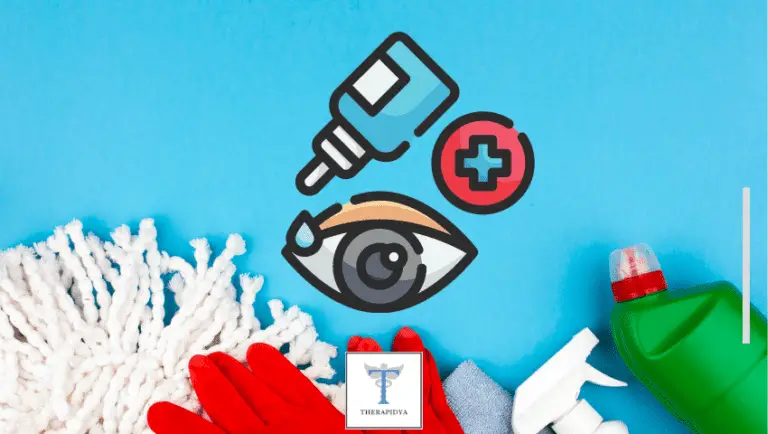Allergies .. A full simplified guide 2023
Allergies are a medical condition which develops due to the immune system’s overreaction to seemingly harmless substances. Allergens such as pollen, certain foods, or pet dander can trigger allergy symptoms ranging from mild to severe. It is crucial to know how to recognize allergies and manage them effectively.
In this article, we will discuss allergies in a simple and easy to understand way. We will explore the common causes of allergies, their symptoms, and the available treatment options. Whether you are a patient or a caregiver, this information can help you make informed decisions about managing allergies and improving your quality of life.
About Allergies
Allergies are an immune response to substances that are typically harmless, such as pollen, dust, pet dander, food, or medications. Allergic reactions can be caused by insect bites, jewelry, cosmetics, and almost any substance that contacts the body. Some people have allergic-type reactions to physical stimuli such as hot or cold temperatures or friction. Allergies affect about 20% of the population and can lead to complications such as eczema, hives, asthma, respiratory tract infections, and life-threatening anaphylaxis.
An allergy is caused by an oversensitive immune system which leads to an improper immune response. When an allergen enters the body of a person with a sensitized immune system, histamine and other chemicals are released by certain cells, causing itching, swelling, mucus production, muscle spasms, and other symptoms. Symptoms vary depending on the allergen and the part of the body where the reaction occurs, ranging from mild to severe, possibly fatal reactions such as anaphylaxis. Allergy testing is required to determine if symptoms are caused by an actual allergy or by other problems such as food poisoning. Tests include skin testing, blood test, and use or elimination tests.
The best way to treat allergies is to avoid what causes them, but it may be impossible in some cases. Medications such as nasal corticosteroid sprays, antihistamines, and eye drops can be used to reduce symptoms caused by inflammation of affected tissues. Longer-acting (second generation) antihistamines are preferred over shorter-acting (first generation) antihistamines, especially in children, and can be purchased over the counter. Injectable certirizine was approved to treat acute urticaria (hives) in patients 6 months and older in 2019. It is not recommended in pediatric patients less than 6 years of age with impaired kidney or liver function.
Causes of Allergies
Allergies are a common medical condition where the immune system reacts to substances that are usually harmless. Symptoms can range from mild discomfort to severe, life-threatening reactions. In fact, allergies affect about 20% of the population or 1 in 5 people. But what causes allergies? While genetics play a role, environmental and lifestyle factors also contribute to their development. Here are some of the main causes of allergies:
– Oversensitive immune system: An allergy is caused by an immune system that overreacts to harmless substances (allergens). The immune system releases histamine and other chemicals that cause symptoms like itching, swelling, and mucus production.
– Family history: There is a strong genetic component to allergies. If one or both parents have allergies, their children are more likely to develop them too.
– Environmental factors: Studies have found that exposure to pollution, chemicals, and even certain bacteria during childhood may increase the risk of allergies.
– Lifestyle factors: Certain lifestyle choices can also contribute to allergies. For example, studies have found that children who grow up in homes with pets are less likely to develop allergies. On the other hand, smoking and poor diet have been linked to an increased risk of allergies.
It’s important to note that anyone can develop allergies, regardless of age or gender. However, certain populations may be at a higher risk, such as those with a family history of allergies, young children, and individuals diagnosed with asthma. If you suspect you may have allergies, it’s important to seek medical attention to get an accurate diagnosis and appropriate treatment.
How is Allergies Diagnosed?
Allergic reactions can range from mild discomfort to life-threatening anaphylaxis. Diagnosing allergies can help identify the culprit allergen and develop a treatment plan to manage symptoms. Here are some of the methods used to diagnose allergies:
1. Medical history: The first step in diagnosing allergies is to gather a detailed medical history. The healthcare provider will ask questions about your symptoms, when they occur, and any potential triggers.
2. Skin testing: Skin testing is the most common method used to diagnose allergies. A small amount of the suspected allergen is pricked or scratched onto the skin, and the reaction is observed. Skin tests can be done using different methods, such as intradermal, scratch, or patch tests. Skin testing is safe and reliable, but cannot be done on people with certain skin conditions or who are taking certain medications.
3. Blood test: Blood tests can also be used to diagnose allergies. Radioallergosorbent (RAST) testing measures the levels of allergy antibodies (IgE) in the blood in response to different allergens. Blood tests may be preferred for people who cannot undergo skin testing or have widespread skin conditions.
4. Elimination diets: If food allergies are suspected, an elimination diet may be recommended. Common allergenic foods are removed from the diet and slowly reintroduced to see if symptoms occur. This method can be time-consuming and may not be conclusive.
Each method has its advantages and limitations, and multiple tests may be needed to confirm an allergy diagnosis. In some cases, further testing may be needed, such as a biopsy, imaging tests, or pulmonary function tests.
Overall, early diagnosis and treatment of allergies can improve the quality of life for affected individuals. Avoiding allergens, taking medications as prescribed, and carrying emergency medication when necessary can help manage symptoms and reduce the risk of severe reactions.
Should i meet a doctor regarding Allergies?
When to See a Doctor About Allergies:
Most allergies can be managed with over-the-counter medications and avoiding triggers. However, there are certain cases where it is necessary to see a doctor. Here are some red flags or warning signs that indicate the need for urgent medical attention:
1. Anaphylaxis – If you experience symptoms such as fainting, low blood pressure, shortness of breath, rash, dizziness, fast heart rate, or nausea and vomiting, seek medical attention immediately. Anaphylaxis is a life-threatening condition that requires immediate treatment.
2. Severe symptoms – If your symptoms are severe, such as difficulty breathing, wheezing, swelling of the face or throat, or hives all over your body, see a doctor as soon as possible.
3. Chronic symptoms – If you have chronic allergy symptoms that are not relieved by over-the-counter medications, see a doctor to discuss treatment options.
4. Children – If your child has allergy symptoms, it’s important to see a doctor to determine the cause and the best treatment plan.
If you are unsure whether your symptoms require medical attention, use this checklist to determine if you need to see a doctor:
– Are your symptoms severe or life-threatening?
– Are your symptoms chronic and not relieved by over-the-counter medications?
– Do you have a history of anaphylaxis?
– Are you experiencing symptoms for the first time?
– Are you unsure what is causing your symptoms?
If you answered yes to any of these questions, it’s important to see a doctor. Don’t hesitate to seek medical attention if you are worried about any of your allergy symptoms.
Refernaces
This article was made with the help of the following Sources
American Academy of Allergy Asthma and Immunology (AAAAI). Allergies. Accessed June 25, 2019 at https://www.aaaai.org/conditions-and-treatments/allergies
American Academy of Allergy Asthma and Immunology. Outdoor Allergens. Accessed April 30, 2018 at https://www.aaaai.org/conditions-and-treatments/library/allergy-library/outdoor-allergens
Sur D, Plesa M, Treatment of Allergic Rhinitis. Am Fam Physician. 2015 Dec 1;92(11):985-992. Accessed June 26, 2017 at http://www.aafp.org/afp/2015/1201/p985.html#afp20151201p985-f1
DeShazo, Richard D., and Stephen F. Kemp. “Patient education: Allergic rhinitis (seasonal allergies) (Beyond the Basics).” UpToDate. Ed. Jonathan Corren and Anna M. Feldweg. UpToDate Inc. Accessed June 23, 2019 at https://www.uptodate.com/contents/allergic-rhinitis-beyond-the-basics








